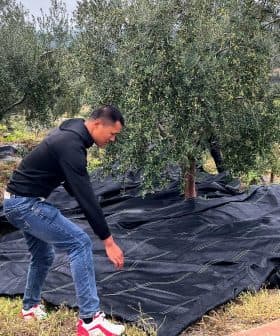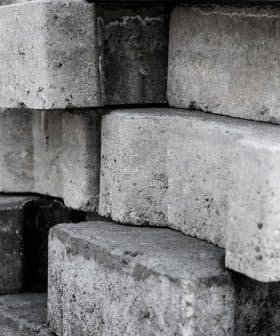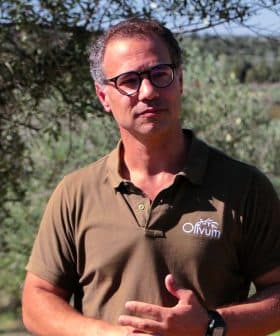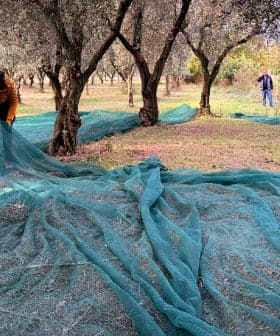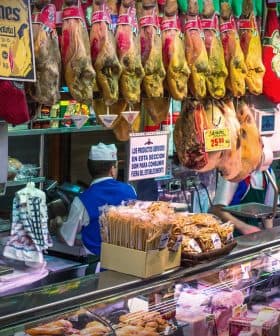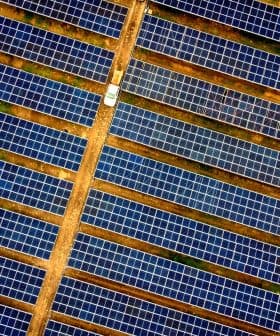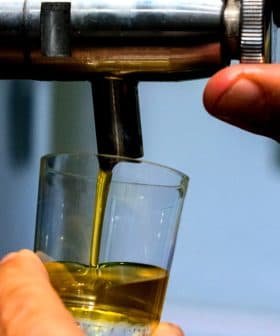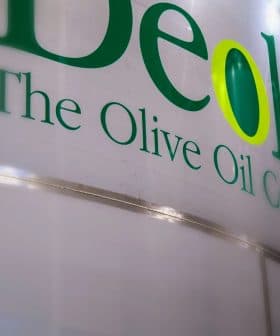Asphalt Made with Olive Oil Byproducts Used to Pave a Highway in Spain

Officials in northern Spain are testing a new type of asphalt made with traditional petrochemicals, olive oil refining byproducts, and recycled vegetable oil on a heavily transited highway connecting Valladolid and Segovia. The experimental asphalt is less energy-intensive to produce, emits fewer toxic fumes, and may be more durable than traditional asphalt, potentially providing additional revenue streams for olive oil producers.
Officials in northern Spain are testing a new type of asphalt manufactured using traditional petrochemicals mixed with materials derived from the olive oil refining process, according to local media reports.
Authorities in Castile and León will pave a 40-meter section of heavily transited highway connecting the autonomous community’s two largest cities – Valladolid and Segovia – with the experimental asphalt. Another 40-meter section of the highway will be paved with conventional asphalt.
The experimental asphalt is made with a mixture of semi-hot bitumen, a byproduct of the petroleum refining process, byproducts from the olive oil refining process and recycled vegetable oil.
See Also:Olive Pits Fuel Flights from SevilleFor every 1,000 liters of semi-hot bitumen, the new manufacturing process requires 300 liters of olive oil refining byproduct and 400 liters of recycled vegetable oil.
The officials plan to compare the performance of the two sections over time. They hope the experimental asphalt, which is less energy-intensive to produce and emits fewer toxic fumes during its application, will prove to be as durable as the traditional formulation or even better.
Previous research has indicated that asphalt made with byproducts from olive oil production may be more resilient than traditional asphalt.
A 2021 study conducted by the Olive Oil Commission of California found that adding olive pomace to asphalt binder enhanced the resilience of the paving material to cracking and other forms of weathering.
According to local authorities in Castile and León, the experimental asphalt can be produced at temperatures 40 degrees (Celcius) cooler than traditional asphalts, which would greatly reduce the amount of energy required to manufacture them and result in fewer greenhouse gas emissions.
Furthermore, the officials suggested that the experimental asphalt formulation would improve working conditions since it emits less smoke and odor while being poured than normal asphalt. Workers are also less likely to be burned since it pours at a lower temperature.
For olive oil producers, more widespread adoption of the experimental asphalt would create another stream of revenue and help offset rising production costs.
Since 2020, researchers in Spain have been looking for ways to create value from the waste created during olive oil production
According to Ainia, a non-profit focused on agribusiness, 80 percent of the biomass of olives transformed into oil is converted into waste products. Removal and treatment of these products are a significant cost for mills but could also provide a complementary stream of revenue.


